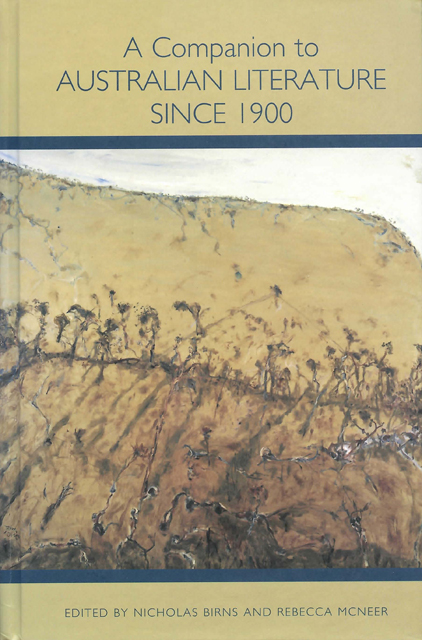Book contents
- Frontmatter
- Dedication
- Contents
- Chronology of Main Events in Australian History, 1901–2005
- Acknowledgments
- Note on the Cover Illustration and Artist
- Introduction
- Part 1 Identities
- Part 2 Writing Across Time
- Part 3 International Reputations
- Part 4 Writers and Regions
- Part 5 Beyond the Canon
- Notes on the Contributors
- Index
20 - Tim Winton and West Australian Writing
Published online by Cambridge University Press: 10 March 2023
- Frontmatter
- Dedication
- Contents
- Chronology of Main Events in Australian History, 1901–2005
- Acknowledgments
- Note on the Cover Illustration and Artist
- Introduction
- Part 1 Identities
- Part 2 Writing Across Time
- Part 3 International Reputations
- Part 4 Writers and Regions
- Part 5 Beyond the Canon
- Notes on the Contributors
- Index
Summary
We are all regional writers, in Australia and around the world.
— Elizabeth JolleyIn Fiction and Poetry, imagined and real landscapes have been invested with meaning in accordance with the need for identification with place, especially in Australia as this ancient land’s Indigenous culture, with its complex affiliations and responsibilities, inscribed its meanings in song, dance, art, and oral narratives in ways completely foreign to its eighteenthcentury immigrant colonizers. From “outside” the land was viewed as remote, pristine, desirable, exotic, or dangerous, and as the invaders encountered the continent’s vast coastlines, deserts, tropics, and wilderness, the sheer difference from familiar, predominantly British, terrains stimulated both utopian and dystopian responses: Arcadia/hell, pastoral/wild, old/new-world, interior/fringe, city/bush metaphors prevailed. Antipodean spaces were denigrated, idealized, commodified, and exploited with such efficiency that its original inhabitants are still fighting to reclaim appropriated territories. While David Malouf has argued that “the idea of the land as an island” (Malouf, 8) and its “relation to the rest of the world” was a European gift, it was a particularly Trojan one, given the residual costs of occupation borne by the Indigenous people. Australian attitudes to the land were also complicated by incompatible concepts about land usage (ownership and custodianship) that divided European and Indigenous cultures and led to the colonial government’s expedient but false declaration of terra nullius.
Australian fiction and visual arts only gradually expressed direct experience of the land, confirming Simon Schama’s claim that “landscape is the work of the mind, [that] its scenery is built up as much from the strata of memory as from layers of rock” (Schama, 7). In a pioneering nation, tropes of dispossession and alienation in foreign environments colored the writing that predictably expressed concern with exotic flora and fauna, distance, isolation, relocation, exile, and the tensions of cross-cultural cohabitation. In the cities’ increasingly urban environments, images of battlers, diggers, sportsmen, and patriots, which served to counter the insecurities of an emerging nation, became mythic icons of a newly federated nation forging its social and political identity.
- Type
- Chapter
- Information
- A Companion to Australian Literature since 1900 , pp. 307 - 320Publisher: Boydell & BrewerPrint publication year: 2010

